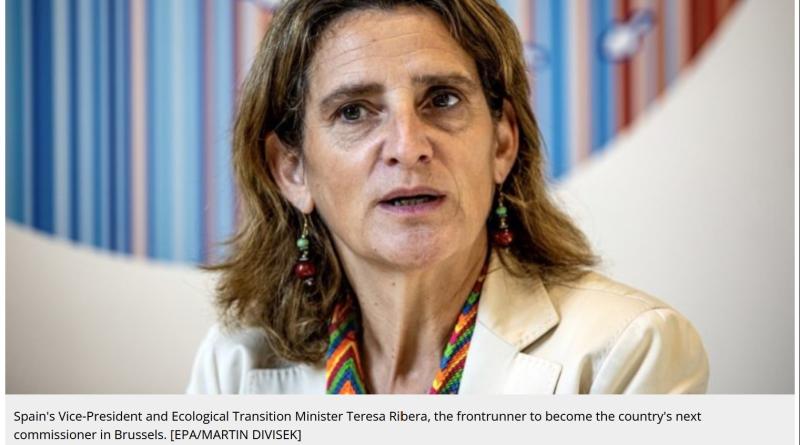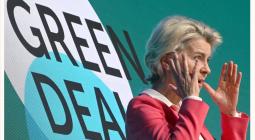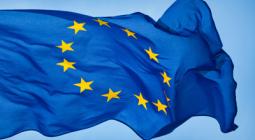Green Deal 2.0: Spain’s Ribera lays down vision for next Commission

Doubling down on climate action and social justice, restoring trust in European democracy, and “Green diplomacy” form the vision set out by Spanish Vice-President and Ecological Transition Minister Teresa Ribera, the frontrunner to become Spain’s next commissioner in Brussels.
Ribera previously affirmed that she would prefer to stay in Spain. But she is now more open to job prospects in the next Commission.
“I’m always prepared to fight for the climate, for clean energy, for my country and for Europe,” Ribera told Euractiv when asked about her career prospects.
“I have never discarded [the option], but it is not me who takes the decision,” she added, asserting it is up to Sánchez to choose the nominee.
In Madrid, rumours swirl that she is Prime Minister Pedro Sánchez’s favourite candidate for the job.
With Ribera’s profile, Spain could score a Commission vice-presidency and a portfolio on energy and/or environment, leading the continuation of the EU’s Green Deal.
Leading the Spanish Socialist government regarding green policies, she became one of the most influential policymakers of the EU’s energy and environment during Spain’s EU Council presidency in the second half of 2023 and was a key voice at the COP28 climate change conference in Dubai.
During Madrid’s EU Council presidency, Ribera was instrumental in passing key Green Deal files, gaining popularity and affection among the other ministers.
When asked whether it is time for a change after five years of Commission President Ursula von der Leyen, Ribera responded that she would like to see "a much (…) greener and (more) socially committed Commission."
Enough with “hijacking” EU’s policymaking
In a clear hint against Germany’s and centre-right EPP’s recent U-turns on key files, she was particularly critical of the recent trend in Brussels whereby individual countries or political groups “hijack” a proposed law, by refusing at the last moment to support an already-agreed compromise.
“I don’t like at all the way we have witnessed in the last year and a half, this lack of respect to the procedure,” she said, adding: “We should pay attention not to get this as a new custom in Brussels, where everybody has a kind of veto at the very end of the process.”
“This does not help to create Europe.”
Green Deal 2.0?
Ribera's vision for the future of the EU's agenda can be considered a 'Green Deal 2.0': continued strong action on climate and the environment, serving as a basis for greater economic prosperity.
However, compared to the current Green Deal, she wants more emphasis on the social dimension – compensating people for the costs of climate action and using the transition to boost equality and social inclusion.
She puts a particular emphasis on the bloc’s shift to clean energy, seeing it as "a way to build a proud Europe (…) to modernise our economy, to reindustrialise or modernise existing industry, to reduce social gaps, (and) to work against inequalities"
Ribera wants to marry Europe’s green agenda with its role on the international stage. She envisages “a kind of soft power, a green diplomacy”, in which third countries trade critical raw materials with Europe in return for economic development and clean energy opportunities. This approach “could build peace worldwide”.
Her main concern, however, is that “people think that the democratic institutions do not deliver”, which she describes as a “real, real problem, a real threat”.




